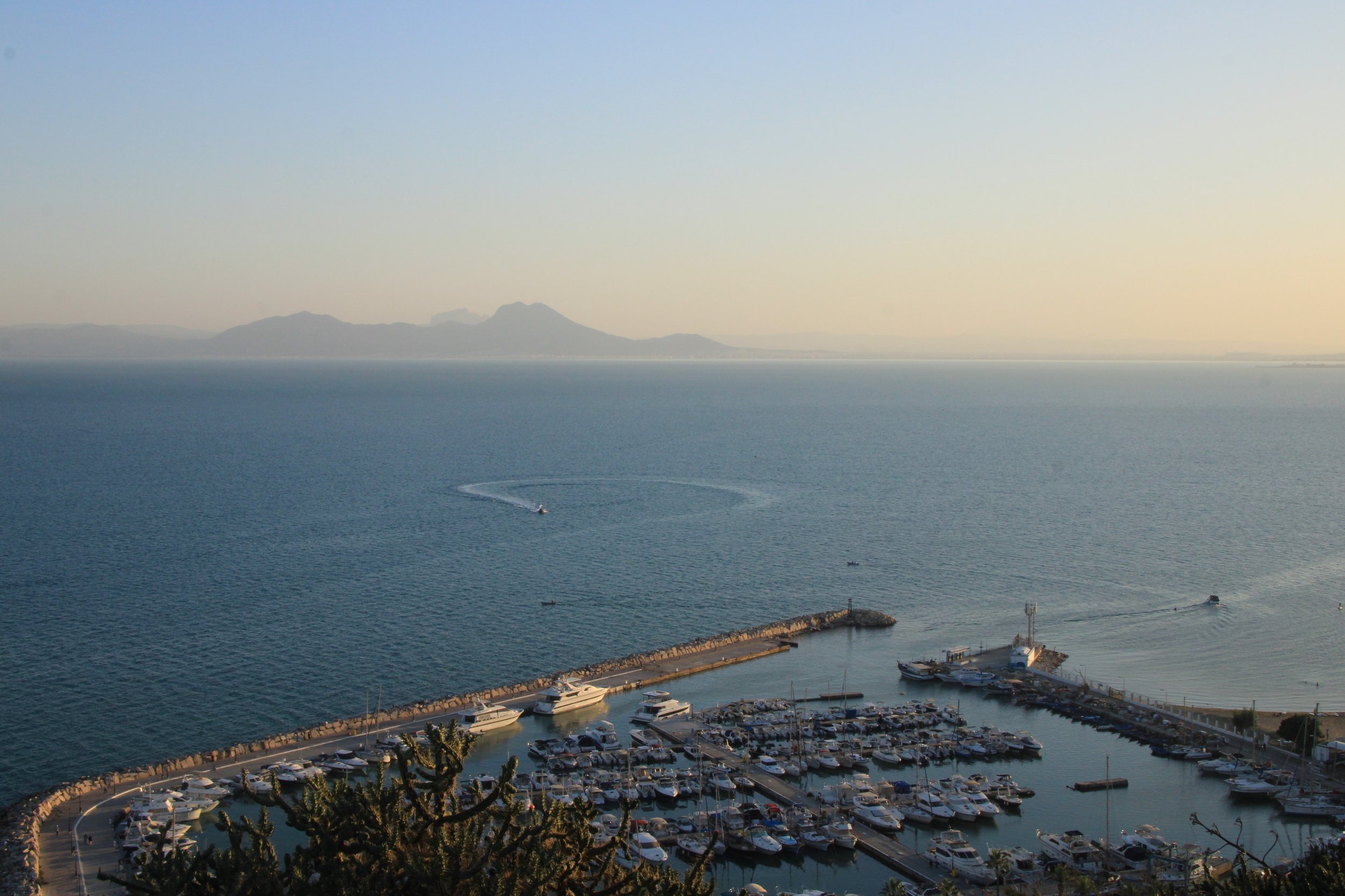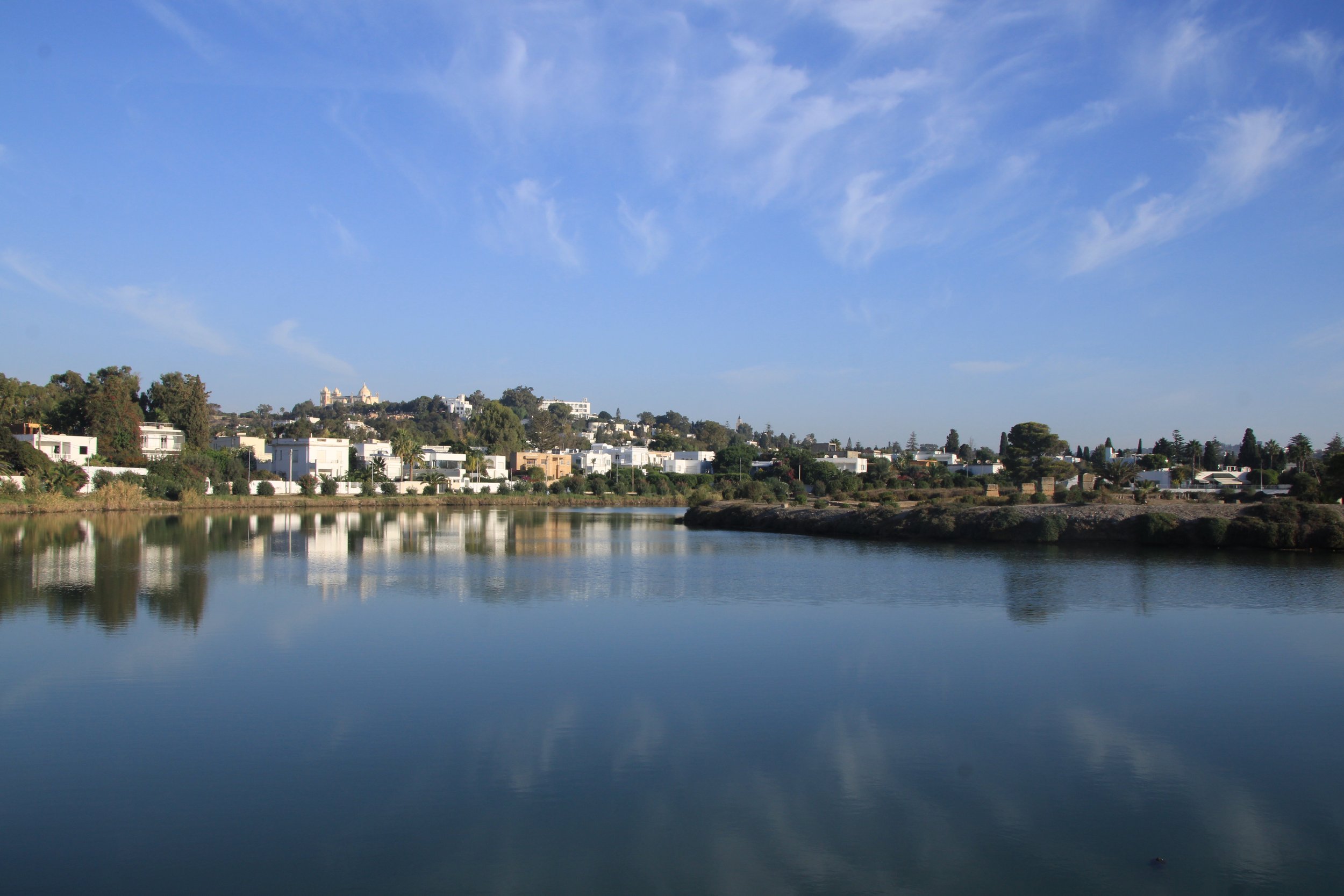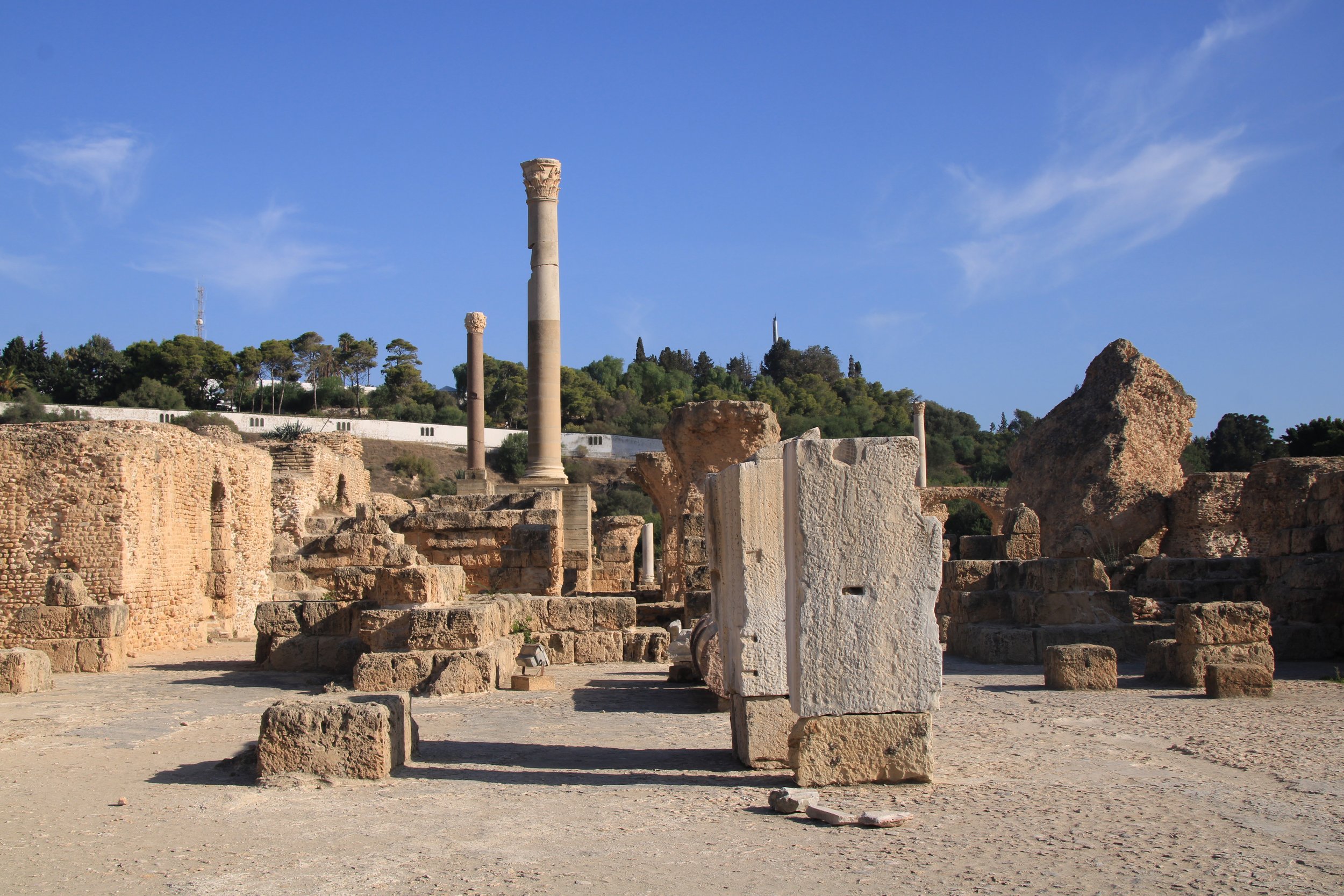On certain occasions, one simply must visit a country which one has no knowledge of. Scrolling through plane tickets in mid-September, a trip to Carthage/Tunis was very affordable, but it was the freight train of ignorance for the country, smashing into my mind, that convinced me to visit. Mushed up against the Mediterranean between Libya in the east and Algeria in the west, tiny Tunisia is exploding with a historic relevance that belies its small size. A little larger than the state of Georgia, Tunisia was the site of the ancient Phoenician state of Carthage, which based on the trouble it gave Rome, elbowed its way into the historical lexicon for all time. Counting the legendary Queen Dido’s arrival at the site of Carthage, the country has changed hands in a major way 11 times, and in more modern history, was the only state which during the Arab Spring actually managed to remove their metastasized dictator.
PICTURED: Tunisians love getting their picture taken, I’ve learned.
Tunisia strikes many arrivals first and foremost with, how should one put it, its secularism. Compared perhaps to all other Arab and Islamic countries, the symbols of the faith aren’t as pervasive as elsewhere. When the muezzin sound the call to prayer, one can typically hear but a single voice, rather than in Morocco, or the Maldives, where so many mosques means each voice overlaps one another in a cacophony that often wakes tourists up in the morning hours. Furthermore, this year, a new Tunisian constitution removed Islam as the enshrined state religion. Research polls have shown that on social issues particularly, but on Sharia Law in general, Tunisians maintain some of the most traditionally liberal views in the Muslim world. This I divined when in preparation for my trip I read a book by a Tunisian author named Hassouna al-Mosbahi. In his work Solitaire, he channels the story of his country’s journey from colonialism, to independence, to dictatorship through the life of an aging and divorced literati, unable to leave behind the colonial past’s emphasis on literature, theater, poetry, art, and beauty, and equally unable to cope with the increasing prevalence “of angry bearded old men,” shouting that all such things are immoral and blasphemous. This is a work of fiction of course, but authors love imparting themselves into their characters, and if one were to make the case at a book club that his protagonist was the chief representation of the culturally repressed in his society, I would agree. Moreover I wouldn’t find it difficult to believe this created the conditions for the current wave of modernity.
At the time of writing, I have not much else to say about the country’s present state (I haven’t been here long). The people seem to feel they share a kinship with Italy and her people, for they drink strong European espresso three times a day, and often speak Italian as a third language in place of English, as I often found in Morocco. While riding a public transport 9-seater van, a problem was had with the clutch. Mechanics arrived to help on motorbikes, and within 35 minutes or so, we were back on the road. A lad in the seat at the rear of me said in French “This is Tunisia,” (Ce Tunisia) in the same way one tends to say, “That’s life,” (C’est la vie). It seemed to my senses a rather important moment, but I couldn’t seem to figure exactly what the lad intended to say. Was he suggesting that stuff just breaks down sometimes in Tunisia, or that help was always a phone call away? Maybe he just meant that kind of thing happens all the time, and my comedic applause at our return to the road was a touristic reaction.
PICTURED: The small spit of land on the right is all that remains of the port of Carthage, a truly wonderous piece of landscape architecture and stonemasonry.
One thing I can say is that I have done a lot of historically-motivated sight-seeing. I’m a fan of history, and sites like Carthage’s Byrsa Hill, or the Amphitheater of El Jem, or the Islamic forts in cities like Monastir and Sousse are my forte on a day out with nothing planned. Regarding Carthage, it is a UNESCO World Heritage Site, yet “The Archaeological site of Carthage” as it’s officially designated is small compared to what the Romans built on top of their old enemies. In fact, the first picture of the Archaeological site of Carthage is not any site of Carthage’s, but the Roman baths of Antoninus the Pious, built almost 300 years after the destruction of Carthage.
PICTURED: What remains of the aristocratic quarter of the city. One can’t imagine what, looking down on the ports, they must have felt when after the Romans had laid siege to their home for 3 years, they finally broke in and started burning.
It’s worth taking a moment to say how total the destruction of Carthage was. In what was tiebreaker in the historical the best-of-three that were the Punic Wars, Rome annihilated Carthage. They burned the city, massacred everyone or sold them into slavery in Italy, knocked down all its walls, and then built their own city right on top of it, preserving little in the process. I found atop the Byrsa Hill, many a fragment of Carthaginian statue and stele plastered in complete randomness to the wall separating the hill with a neighboring housing block. It was like the Classical-era’s version of a modern memorial wall; the kind victims of public tragedies like COVID or 9/11 build to attach photos and lay flowers. The Baths of Antonius were truly awe-inspiring, and represented something far greater than even gymnasiums today. They had a steam room, hot pool, frigid pool, swimming pool, gym, and a mirror image of all these on the other side, all of which overlooked the sea. In the middle of the area, there can still be seen the piece of the vaulted ceiling that, shortly before Rome was sacked by the Vandals, collapsed and led to the bath’s general disuse after more than 200 years.
PICTURED: Among the Baths of Antoninus, the large rock on the right is the piece of the ceiling.









